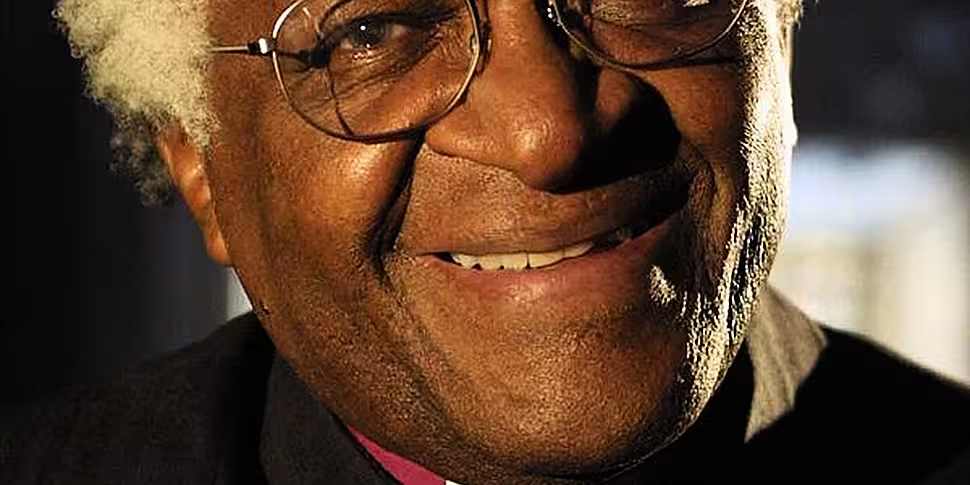Archbishop Desmond Tutu, the charismatic priest known across the world for his opposition to apartheid, has died peacefully at the age of 90.
With Mandela languishing in prison, for many years it was Tutu who was the most well-known thorn in the side of South Africa’s apartheid Government. To his supporters, he was a “rabble-rouser for peace”, while President PW Botha denounced him as “public enemy number one”.
“The passing of Archbishop Emeritus Desmond Tutu is another chapter of bereavement in our nation’s farewell to a generation of outstanding South Africans who have bequeathed us a liberated South Africa,” President Cyril Ramaphosa said.
“From the pavements of resistance in South Africa to the pulpits of the world’s great cathedrals and places of worship, and the prestigious setting of the Nobel peace prize ceremony, the Arch distinguished himself as a non-sectarian, inclusive champion of universal human rights.”
Desmond Tutu was a patriot without equal; a leader of principle and pragmatism who gave meaning to the biblical insight that faith without works is dead. We pray that Archbishop Tutu’s soul will rest in peace but that his spirit will stand sentry over the future of our nation. pic.twitter.com/ULGzhOOn9E
— Cyril Ramaphosa 🇿🇦 (@CyrilRamaphosa) December 26, 2021
Humble beginnings
Desmond Mpilo Tutu was born in 1931 in Klerksdorp - a town 160km from Johannesburg. His father was a headteacher and his mother a cook. Initially, he dreamed of becoming a doctor but the family could not afford the fees. Instead, he trained as a teacher. But Tutu felt a strong calling from God and in 1961 he was ordained as an Anglican priest.
Recognising his potential, the Church arranged for Tutu to study further at King’s College, London. His time there was a revelation; in Britain, blacks were not relegated to the back of the queue and police officers would more likely smile than snarl at you. After four years, Tutu returned to his homeland more convinced than ever that South Africa must change.
In Desmond Tutu’s eyes, we saw Jesus’ love. In his voice, we heard Jesus’ compassion. In his laughter, we heard Jesus’ joy. It was beautiful and brave. His greatest love is now realised as he meets his Lord face to face.
Full statement: https://t.co/E4U9AIVzzi pic.twitter.com/bYfuYyz56B— Archbishop of Canterbury (@JustinWelby) December 26, 2021
A political priest
A tiny bundle of energy, Tutu was at first wary of entering the political arena. But 1976 was a turning point; the demand that Afrikaans be taught alongside English in black schools brought thousands out onto the streets. But the Soweto Uprising, as it became known, ended in tragedy when the police opened fire on protestors, killing hundreds and maiming many more. Dressed in his striking purple cassock, Tutu presided over the funerals and led marches of tens of thousands demanding justice for the dead.
But he was not a figure beyond criticism. He never endorsed violence as a tactic against apartheid - a decision that angered the African National Congress but which won him the Nobel Peace Prize in 1984. It was an accolade he accepted on behalf of, “the little people of this country whose noses are rubbed in the dust every day”.
Reluctantly, he swung behind the international campaign for sanctions, although he acknowledged that in the short-term they would mean economic hardship for the very people they sought to liberate.
“If you can tell me of an alternative to non-violent strategy that will bring an end to apartheid then I will abandon my commitment to sanctions and go round the world pursuing your approach until we reach our goal,” he said.
“But if you cannot, then I will stick with sanctions.”
His intervention was decisive in persuading the United States Congress to back the sanctions and led many American companies to disinvest from South Africa.
Very sad to hear of the passing of Archbishop Desmond Tutu.
A tireless campaigner for social justice & reconciliation, he was the conscience of South Africa and beyond.
His unshakeable faith in humanity brought people together in NI too, a vital part of our own peace process.— Micheál Martin (@MichealMartinTD) December 26, 2021
In 1985 he became Bishop of Johannesburg and the following year he was appointed Archbishop of Cape Town - the first black man to hold the job and he lived illegally in his official residence in the whites only suburb of Bishopscourt.
Despite the end of apartheid in the 1990s, Tutu remained in the political spotlight when he was asked to chair the country’s Truth and Reconciliation Commission. This, Tutu believed, was the hardest task of his life and one that often reduced him to tears. The commission travelled around South Africa giving people the opportunity to speak out about their experiences during apartheid. For some whites, it was a witch hunt. For many blacks, it was a travesty of justice that allowed their oppressors to get away with murder.
In 2010 Tutu formally retired from public life, saying he wanted to spend more time "drinking red bush tea and watching cricket". He is survived by his wife, Nomalizo Leah, and four children.
Main Image: Desmond Tutu. Picture by: Wikimedia Commons.









